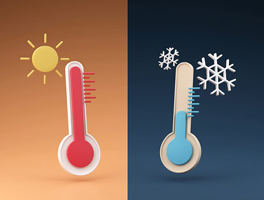 |
Dear readers,
Welcome to the Climate Weekly newsletter by the Centre for Science and Environment’s Climate Change programme and Down to Earth.
A new study has revealed that five oil giants—Chevron, ExxonMobil, Saudi Aramco, Gazprom and BP—contributed to the deadly 1998 heatwave in India. Down to Earth’s Rohini Krishnamurthy highlights how these five companies caused the intensity of the five hottest days to increase by 0.08°C, which caused heavy economic losses. For instance, Chevron was responsible for $1.9 billion in losses during the 1998 heatwave. These companies also worsened heatwaves in France (2003), Russia (2010) and the United States (2012), increasing the intensity of the five hottest days by 0.11°C, 0.27°C, and 0.09°C. Chevron’s caused losses of $3 billion, $2.8 billion, and $28.8 billion in these cases.
For this analysis, researchers developed a tool to trace specific climate damages back to emissions from individual fossil fuel companies. This could have applications in climate liability cases, which have been on the rise—with over 100 climate-linked lawsuits being filed since 2017. On a global scale, researchers were able to attribute these five companies with economic losses from extreme heat amounting to $9 trillion, while the top 111 major emitters caused losses of $28 trillion between 1991-2020.
In the world of trade, Donald Trump’s recent attempts to reshape the world trade order makes it important to understand why trade has become critical for a country’s economic growth. CSE’s Director-General, Sunita Narain, writes about the recent history of world trade, noting the underlying politics behind the establishment of the World Trade Organisation (WTO) in the early 1990s. She explains how the industrialised world found it cheaper to do business in lowest-wage countries with minimal regulations, given that, within their own countries, labour costs were high and environmental regulations were prohibitive. Climate change has been a major casualty, with the West’s emissions never actually reducing—rather simply being moved to new sites.
In the economic boom that followed, manufacturing and trade, services, technology, banks and financial markets flourished, while income disparities sharpened. However, Narain warns that Trump’s intent to disengage from global trade could have huge costs. Low-wage countries have felt the economic benefits of global trade. How the new trading system is shaped could make or break much of our world.
Finally, scientists have confirmed that the worst ongoing global coral bleaching event has affected nearly 84 per cent of the world’s coral reefs. Climate models have further predicted that nearly every coral reef on the planet will experience bleaching events annually between 2040 and 2050.
|
|
 |
| |
 |
|
| |
 |
 |
| |
By - Upamanyu Das
Climate Change, CSE
|
| |
|
 |
|
|
| |
 |
|
| |
| EXTREME WEATHER TRACKER |
| |
Over 60% of world may have seen rapid temperature ‘flips’ between extreme heat and cold since 1961, 25 April 2025
|
 |
 |
|
|
| |
 |
|
| |
 |
 |
Over 160 killed by lightning in March-April 2025 — 184% surge from last year, 24 April 2025
|
|
|
| |
 |
|
| |
|
COMMENTARIES |
 |
|
Something’s got to give, 24 April 2025
|
 |
|
In this interconnected world of trade, service and finance, disengagement will come at huge costs. How this new trade regime is designed would make or break much of our world
|
|
|
| |
|
|
| |
|
|
| |
 |
|
| |
CLIMATE NEWS | SCIENCE| IMPACTS| POLITICS |
|
| |
 |
|
| |
|
|
| |
 |
|
| |
|
|
| |
 |
|
| |
|
|
| |
 |
|
| |
|
|
| |
 |
|
| |
|
|
| |
 |
|
| |
|
|
| |
 |
|
| |
|
|
| |
 |
|
| |
|
|
| |
 |
|
| |
|
|
| |
 |
|
| |
|
|
| |
 |
|
| |
|
|
| |
 |
|
| |
|
|
| |
 |
|
| |
|
|
| |
 |
|
| |
|
|
| |
 |
|
| |
|
|
| |
|
|
| |
| Gobar Times |
|
Online Training Course |
| |
|
|
|
|
|
|
|
|
| |
|
|